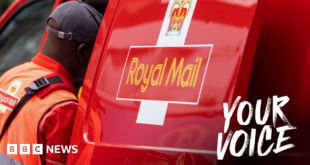Producing garments with timeless appeal is only one part of Fast Retailing’s mission. The parent company of Uniqlo, J Brand, Theory and six more brands, recently released its 2021 sustainability report documenting 20 years of environmentally focused milestones.
The need for transparency was even greater as a result of the global pandemic, which made many re-examine their commitments to the people and planet.
Considering its scale—Uniqlo alone is the second-largest retailer in the world, according to data provided by retail data and analytics firm Edited—Fast Retailing understands it has an incredible responsibility to lead sustainably.
“How are we going to leave behind a positive world for the next generation? What kind of economic activity will create a path to a positive world?” Tadashi Yanai, chairman, president and CEO of the Fast Retailing Group, stated in the report. “We must think wholeheartedly about these questions and act. With our latest sustainability report, we hope to reaffirm our commitment to be the kind of business that finds and implements answers to such questions.”
Despite the unexpected events of 2020, the company didn’t hold back on making new sustainability commitments or innovating its products. Last year, the company signed the Fashion Industry Charter for Climate Action, an initiative formed by fashion stakeholders to achieve net-zero emissions by 2050. It was included in the Dow Jones Sustainability Indices World Index, and recognized as a water security “A List” company by CDP.
Uniqlo, a brand known for mainstreaming textile technologies like its moisture-wicking DRY-EX fabric worn by athletes and its water-saving BlueCycle finishing process, was the source for many of these environmental wins. In November, the company debuted the Uniqlo Recycled Down Jacket, the first product born from the brand’s recycling program, which has collected and donated gently worn Uniqlo clothing to people in need since 2006.
Uniqlo recently evolved this program to include product-to-product recycling, thanks in part to new technology that extracts down and feathers efficiently. The jacket is completely filled with reclaimed down and feathers taken from 620,000 pieces of down products collected in Japan since the start of 2019.
The brand also increased its use of recycled polyester from post-consumer PET bottles. Recycled polyester comprises 32-75 percent of the high-performance, quick-drying DRY-EX Polo Shirt, and 30 percent of the Fluffy Yarn Fleece Full-Zip Jacket and Fluffy Yarn Fleece Pullover Shirt.
At Fast Retailing’s Jeans Innovation Center (JIC) in Los Angeles, the company reports that it has managed to reduce water consumption by up to 99 percent in the finishing process—and it plans to promote this technology across all of its brands.
“The new method requires just a fraction of the water we previously used, without compromising product quality. We do this by using special washing machines with ozone gas cleaning and nano-bubble cleaning functions. In addition, the introduction of eco-stones—long-lasting, artificial stones that do not wear down—has eliminated the need for crushed natural stones and reduced the amount of water required for cleaning,” the report states.
J Brand garnered attention in 2020 when it was announced that Fast Retailing would eliminate the premium denim brand’s wholesale business, but it also made headway in traceability. Last year, the brand launched a mid-rise super skinny style, which features traceable cotton and recycled polyester and is produced with water-saving technology in the finishing process.
Human rights
In 2001, Fast Retailing formed its Social Contribution Office to focus on supporting its communities. Since then, it has launched a clothing donation program to support refugee camps and victims of natural disasters around the world, and developed initiatives to improve work environments and protect workers throughout its supply chain.
It established human rights initiatives in accordance with the United Nations Guiding Principles on Business and Human Rights and created a committee that ensures the policies are being followed.
In 2020, the company conducted training for 489 factories in 22 countries and regions to ensure that partner factories understand the Code of Conduct and the latest labor standards.
It also has initiatives in place to make sure there are equal opportunities for women, refugees, members of the LGBTQI+ community and those with disabilities. Currently, more than 1,000 employees with disabilities work at Uniqlo and GU stores around the world, and as of August 2020, women made up 39.2 percent of total management positions within the Fast Retailing Group, and 121 refugees were working at Uniqlo stores all over the world.
Fast Retailing was one of many throughout the industry to respond to the Covid-19 pandemic. It donated a total of 16.73 million masks and 1.43 million isolation gowns to clinical workers around the world, and made monetary and other donations in 26 countries and regions.



